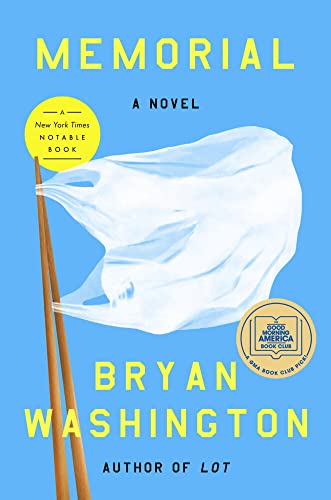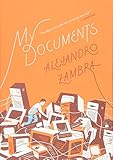I began my year with a goal of Twitter threading where I was the moment I finished reading a book. Incredibly stupid in hindsight! But I had grown weary of sites like Goodreads, its connection to Amazon adding further fuel to its overwhelming hand in the book industry, and wanted a new way to keep track of my reading. I live and die on Twitter, so posting photos and a brief review was second nature. Plus, I was starting to travel more by bus and car and plane to see friends or participate in writing conferences, which allowed for more reading. And even if I couldn’t remember a lick about the plot of a book, I always remember where I was when I turned its last page, the quiet that rippled around me for just a beat.
I documented for my Twitter timeline: Miriam Toews’s Women Talking, waiting for a friend at Mt. Royal Tavern, a dive bar in Baltimore, MD — I snapped a photo of the bar’s ceiling, a reproduction of the Sistine Chapel’s. Rion Amilcar Scott’s The World Doesn’t Require You, at my day job, while listening along to Madonna’s “Rain” on a loop. El Dorado Freddy’s by Danny Caine and Tara Wray, in a long line for Dunkin Donuts — extremely planned on my part as I held out on reading the last poem during my commute. I stopped at a coffee shop not too far from my therapist’s office to finish celeste doak’s brilliant American Herstory. I stopped at a different coffee shop, also close to my therapist’s office, to finish Amber Sparks’s And I Do Not Forgive You. Peter Kispert’s I Know You Know Who I Am was a balm on a particularly depressing morning when I didn’t want to get out of bed. And then, I read Bryan Washington’s Memorial. New York City had just started its half-assed shutdown to prevent the spread of COVID and “quarantine” became vernacular — I finished the novel, my heart full and nourished, and didn’t pick up another book for two months.
In that time, I read a deluge of emails from HR and the communications team at my job on working remotely, taking sick days, using PTO, how to notify HR if you’ve been exposed to the virus or if you’ve traveled to a state where the number of cases were greater than New York’s, and multiple surveys about the aforementioned emails, asking if we were happy or distressed. My personal inbox wasn’t safe either. Any corporate entity I had so much as sneezed near bombarded me with statements about how they were staying on top of COVID, taking preventative measures, how we could trust in them even when none of us could trust our government. The same companies would later send Black Lives Matter statements after a cop murdered George Floyd; I would read Twitter threads debunking these statements, illuminating how these companies were actually very anti-Black in both policy and practice.
While I wasn’t reading books, I was deep-diving into articles about the rise and fall of Bon Appetít’s Test Kitchen empire, the racism behind the scenes, the messiness laid bare in bite-size morsels I fiendishly gobbled up like a starved cat. I read the interview where Alison Roman took jabs at both Chrissy Teigan and Marie Kondo, then watched the social media blowback in real time. I redirected my reading energy to niche YouTube communities, mainly Big Family vloggers and Mukbangers. I read their comment sections, searching for clues about whether or not the content creators were white supremacists or homophobic or apologetic for such toxicity. I waited for them to crack. I started to believe and still do that anyone with a large platform was bad.
In between my trash binging, I picked up a number of books and cast them aside. Books I enjoyed in the moment, getting fifty or a hundred or two hundred pages into them, until one evening I set them aside to cook dinner or stare aggressively at my blank wall, and never found my way back. Books like Bernadine Evaristo’s Girl, Woman, Other, Manuel Gonzales’s The Regional Office is Under Attack!, Brit Bennett’s The Vanishing Half, Samanta Schweblin’s Little Eyes, María Fernanda Ampuero’s Cockfight, and Sayaka Murata’s Earthlings. They didn’t fail me. I failed them.
When reading new books became too much for my smooth brain, I returned to some favorites: Diego Zúñiga’s Camanchaca, Alejandro Zambra’s My Documents, passages from Raven Leilani’s Luster. I survived on new short stories by Alejandro Varela, Claire Rudy Foster, Vanessa Chan, Yohanca Delgado, John Manuel Arias, Jared Jackson, and essays by Edgar Gomez and CJ Hauser. I also leaned on my editorial work, reading submissions for Barrelhouse’s Funky Flash issue, publishing stories by Yamilette Vizcaíno Rivera, Kevin Kong, and Téa Franco, among others.
There were, thankfully, books that brought me back. Zachary Doss’s Boy Oh Boy, Megan Giddings’s Lakewood, Juliana Delgado Lopera’s Fiebre Tropical, Legna Rodriguez Iglesias’s My Favorite Girlfriend was a French Bulldog, Roy Guzmán‘s Catrachos, Weike Wang’s Chemistry, Danielle Evans’s Before You Suffocate Your Own Fool Self and The Office of Historical Corrections, Desiree Cooper’s Know the Mother, Leah Hampton’s F*ckface, JP Infante’s chapbook On the Tip of Their Mother’s Tongue.
And there were books I read that won’t publish until next year. Gabriela Garcia’s Of Women and Salt, Casey McQuiston’s One Last Stop, Michael Alessi’s Call a Body Home, and Marcos Gonsalez’s Pedro’s Theory.
2020 was a bust in so many ways. My brain feels like putty. But I’m grateful for the words I read and the ones I will one day read. I’m grateful for a community of writers pushing forward, supporting one another, continuing to write beneath the weight of so much. And I appreciate, no matter how frustrating, that I can’t quite explain what makes a book “work” for me. It’s alchemy; I know nothing. I am always surprised. I hope only this remains unchanged in 2021.
More from A Year in Reading 2020
Don’t miss: A Year in Reading 2019, 2018, 2017, 2016, 2015, 2014, 2013, 2012, 2011, 2010, 2009, 2008, 2007, 2006, 2005

















